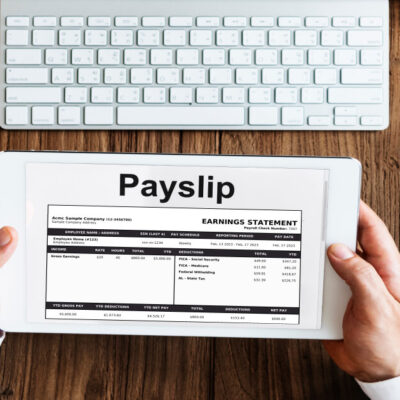Introduction
Running a business is not just about selling products or services; it’s also about managing money smartly. The Best business bank account should be opened as one of the first and most crucial tasks. This account separates your personal and business finances, making your transactions easier and helping to build your business credit.
With so many options available, choosing the right bank account can be confusing. But don’t worry — this guide will help you understand what to look for and how to choose the best fit for your business.
Why the Right Bank Account Matters
1. Keeps Your Finances Organized
Managing revenue and expenses is made simpler when you create a different account for your business. You can see exactly how much your business is earning and spending. This helps you make better decisions and saves time during tax season.
2. Builds Business Credibility
When payments are made from a business account, you get the respect of your clients and vendors. It gives a professional image. It also helps you accept digital payments and checks in your business name.
3. Prepares You for Growth
Many business accounts come with options like credit lines, business loans, and financial tools. As your business grows, you’ll need these services. A good bank account makes that possible.
Key Features to Look For
1. Low Fees
- Look for banks that don’t charge monthly maintenance fees.
- Make sure there are no hidden costs.
- If you maintain a minimum balance, certain banks will not charge you fees.
2. Online and Mobile Banking
- You should be able to access your account anytime.
- Bill payment, transfers, and deposits should all be possible through mobile apps.
- Real-time alerts are helpful to monitor transactions instantly.
3. Helpful Customer Support
- Choose a bank with 24/7 support via phone or chat.
- Fast help when something goes wrong is a must.
- Business-friendly guidance can be a big plus.
Types of Business Bank Accounts
Traditional Banks
These are the well-known banks, such as Bank of America, Chase, and Wells Fargo. They offer:
- Physical branches
- In-person customer service
- A wide range of financial products
Best for: Medium to large businesses that want full-service banking.
Online Banks
These are newer banks that work mostly through apps or websites. They offer:
- Lower fees
- Easy sign-up process
- Great tech features
Best for: Startups, freelancers, and e-commerce stores.
Credit Unions
These are member-owned organizations. They provide:
- Low-cost accounts
- Personalized customer care
- Community-based banking
Best for: Small businesses looking for a personal touch.
Related more articles, card payment machine
Top Benefits of the Best Business Bank Account
1. Saves Time
- Automate bill payments
- Use tools to track income and expenses
- Connect easily with accounting software
2. Helps Build Credit
- Some accounts offer small business credit cards
- Keeps a history of good financial behavior
- Leads to better chances for business loans
3. Rewards and Perks
- Some banks give cashback on purchases
- Free checks, ACH transfers, or financial tools
- Offers to save on business services or supplies
How to Choose the Best Account for You
1. Know Your Business Needs
- Do you make many cash deposits?
- Did you travel and need wide ATM access?
- Do you need financing or just basic features?
2. Compare Bank Offers
- Don’t go with the first option you see
- Compare at least three different banks
- Check online reviews and customer experiences
3. Test the App and Support
- A user-friendly app is a must
- Try contacting support before signing up
- Make sure help is quick and easy to reach
Conclusion
Choosing the best business bank account is a key step toward financial success. It gives your business structure, builds credibility, and helps you stay in control. Whether you pick a traditional bank, an online bank, or a credit union, make sure it fits your business size, goals, and work style.
Take time to compare your options, understand what each bank offers, and choose the one that truly supports your business. A smart banking choice today can help your business grow faster, save more money, and operate smoothly.
Frequently Asked Question
1. What is an EPOS system and how does it work?
An EPOS (Electronic Point of Sale) system processes sales, tracks inventory, manages payments, and helps streamline business operations in real time.
2. Can I link my EPOS system to my business bank account?
Yes, most modern EPOS systems can integrate with your business bank account to manage payments, deposits, and financial tracking more efficiently.
3. Which business bank account works best with an EPOS system?
Accounts offering easy API access, instant payments, and low fees—like those from digital banks or traditional banks with business features—work best with EPOS.
4. Do I need a business bank account to use an EPOS system?
Yes, a business bank account is essential to receive customer payments, track income, and separate your personal and business finances.
5. Can EPOS systems accept card payments linked to my bank?
Absolutely! Most EPOS systems are compatible with card readers and payment gateways that deposit funds directly into your business bank account.
6. How do I choose the best business bank account for EPOS?
Look for accounts with low transaction fees, easy integration, mobile access, and support for EPOS payment processing.
7. Is it safe to connect my EPOS system to my bank account?
Yes, as long as you use a secure, PCI-compliant EPOS provider and your bank offers secure online banking features.
Related more articles, visit here


